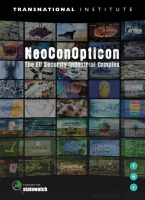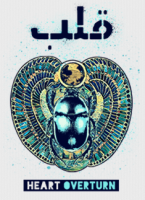Call for Papers: Understanding and challenging authoritarianism
Topics
The Transnational Institute (TNI) is issuing an open call for essays and contributions on authoritarianism. These may be written or artistic essays. Selected authors/artists will be invited to join an ongoing scholar-activist working group on authoritarianism.

Our goal is to produce a series of popular primers, articles, multimedia and artistic collaborations that can equip social movements with the analysis and ideas to confront authoritarianism and advance just solidarity-based alternatives.
The election of the likes of Trump, Duterte and Modi has bought long-standing concerns about an authoritarian drift dramatically to the fore. Nationalist, racist and xenophobic forces have emerged or grown in popularity in many places in the world. The “hollowing out” of democracy has been joined by the “shrinking space” for civil society. This is not just playing out under the leadership of reactionary outliers but has also been normalised even by supposedly progressive politicians that have massively expanded surveillance, curtailed civil liberties and militarised borders with very little opposition. The promises of Fukuyama, Friedman and others that capitalism would bring liberal, open societies to the world lie in tatters. The Berlin Wall, whose demolition was supposed to herald the decisive victory of liberalism over authoritarianism, would now be one of more than 65 such militarised border walls globally.
What has happened? What can be done to advance an alternative course? How do we advance our call for urgently-needed radical transformation while the space for democratic and extra-parliamentary progress appears to be closing?
There is an urgency about this issue that goes beyond this current, anxious political juncture. We are faced with a series of critical global challenges including climate change impacts, ever-widening inequalities, and the restructuring of the world of work. These are only likely to fuel further insecurity as long as states appear so ill-prepared to tackle them. How do we prevent the unfolding dystopian visions being translated into popular policies? How can popular alternatives address genuine insecurities in ways that encourage collaboration and solidarity, rather than fear and isolationism.
TNI believes it is critical to both understand the underlying causes of this moment, as well as to identify the most effective strategies to confront authoritarianism and advance a different socially and ecologically-just path.
Here are a number of important and diverse questions that we would like to interrogate:
- Authoritarianism is not a new form of governance, but its current strength appears to challenge the democratic gains made globally since WWII and the end of the European empires – what about the recent rise is historically rooted, and what is distinct and new?
- What are the underlying causes of the contemporary rise of reactionary authoritarian populists? What are the principal forces, actors and correlations of power that have created this moment?
- What is the correlation between neoliberalism, or more broadly capitalism, and the rise of authoritarianism?
- What lies behind the potency of authoritarianism – in terms of its appeal on a psychological, political and cultural level?
- What role has the media and popular culture played in facilitating acceptance of authoritarian policies and how might these narratives be challenged/subverted/redirected?
- What role has the War on Terror played in normalizing authoritarianism, and what can we learn from our collective failure to confront its expansive and ongoing security and surveillance ambitions?
- Has digitalisation played a role in facilitating authoritarianism? How can we harness the emancipatory potential of digital cultures to confront this?
- How are we to understand the contradictory elite responses – political, capitalist and corporate – to the new generation of populist authoritarians?
- How should social movements best confront authoritarianism? Is a “progressive populism” the antidote to authoritarian populism, or is the fixation on “populism” the problem?
- Which are the most inspiring campaigns and initiatives – at local or national/international levels - that have been successful in challenging authoritarianism? What are the lessons and experiences that can amplify these successes?
- What concrete solutions can a progressive left offer to address people’s sense of social insecurity in ways that encourage collaboration and solidarity?
- How can we build inclusive movements that address issues of oppression and privilege without leading to defensive backlash and division?
This is not an exclusive list. We welcome a wide range of perspectives and analysis on the broad theme, however TNI does appreciate contributions that relate to areas we most closely work on such as corporate power, trade and investment policies, land rights and resource grabbing, public services, security and civil liberties, social movements and counter-power (see https://www.tni.org/en/projects)
Process
Our longer-term goal is to set up a working group on this issue, bringing together critical intellectuals, artists and activists. In the first instance, we hope to produce a publication based on the best papers, and to popularise those through articles, infographics, videos and art.
Participants in this project will be partly chosen through this open call. The decision on which proposals are featured will be decided by an Editorial Panel made up of the Director, a TNI fellow and TNI’s Futures Lab Coordinator. The selection process will follow three stages:
- In the first stage, participants will be asked to provide abstracts, a short bio and some links to previous work. It will help your application if your previous work is not just limited to academic texts but includes some more accessible journalistic or creative pieces. Abstracts can be based on existing papers, photo essays or other creative proposals, or be provisional ideas of what you hope to explore. If you would like to apply for a mini-grant – available to low-income participants – please indicate this at this stage.
- Those whose abstracts are chosen will be asked to submit an essay. Up to eight essays, including one or two artistic collaborations will be selected for the report by the Editorial Panel.
- The selected pieces will go through a final round of revisions based on feedback from the Editorial Panel, and subject to final copyedit.
- Contributions that do not make the final report – but are nevertheless considered good by the Editorial Panel - will be published on the website alongside the main report. Remuneration unfortunately won’t be available for essays that don’t appear in the main report.
To encourage submissions from activists on low-incomes and people from the Global South , we have a small number of grants of up to 500 euros for selected essays from individuals that fit this category. Artistic proposals will be financed, resources-permitting, on a case-by-case basis. Please indicate in your submissions whether you would like to apply for this grant. The money will only be distributed if your contribution is chosen for the main report.
Written style
TNI is a research and advocacy organisation but not an academic institution, and seeks to provide accessible analysis that can be read and used by a broad range of activists. We are looking therefore for analysis that is not over-theoretical and written in a style that is accessible.
We encourage the use of:
- stories
- concrete examples
- metaphors
- journalistic techniques
We discourage the overuse of academic jargon literature analysis and academic debates that mean little to the public. In our experience the more accessible the material, the more widely it is used and shared.
For an idea of the kind of essays we are interested in, please read the essays featured in State of Power 2017: http://www.tni.org/stateofpower2017
Instructions for submission
- Abstracts/essays must address the issue of authoritarianism from a critical progressive perspective, seeking to provide useful knowledge and analysis for movements engaged in the struggle for social and environmental justice
- Abstracts/essays can be based on reworked versions of existing or previously published essays/papers but must be made accessible to a non-academic audience
- TNI particularly welcomes submissions by women, young scholars/artists and people based in the Global South.
- Abstracts and essays can be written in English or Spanish.
- Abstracts must be a maximum of 1000 words. They do not need to be of continuous prose but must capture the main arguments of the essay and can be expanded outlines. Bios should be 200 words.
- Final Essay length: 4000-5000 words. Shorter essays are acceptable, but not longer than 5000 words.
- Style: TNI has five basic criteria for its research and publications that will also be used to assess the abstracts and essays:
- Credible: Well researched and evidence-based
- Accessible: Readable by a broad non-specialist audience (in other words please avoid too much academic jargon) and try to use stories, examples
- Additional: Adds depth, new insights or detail to existing knowledge/research
- Radical: Tackles the structural roots of critical issues
- Propositional: Does not just critique, but also puts forward just alternatives where relevant
- TNI's styleguide can be found here
- Do not include references in brackets within the text eg (Abramson, 2011) in the academic style. As we first publish online and then as a printable PDF, please:
- where relevant link to the reference where it is available as a web resource
- AND provide an endnote with the full reference, preferably in Harvard style. You may also provide a bibliography at end of essay instead.
- Please do not overdo it on the endnotes (no more than 40 for each essay)– use it mainly for referring to facts/evidence that may be surprising, questioned or challenged.
- Please send as .doc file or .docx file or Open/Libre Office equivalent for written texts, pdf for artistic submissions
- The decision of the Editorial Panel is final. If your abstract or essay is chosen for the book, please be ready to respond to peer reviews and copy editing comments based on the timeline below.
Timeline
- September 2017: Received first full papers
- April 2018: Publication of papers
- May - December 2018: Open to additional submissions


